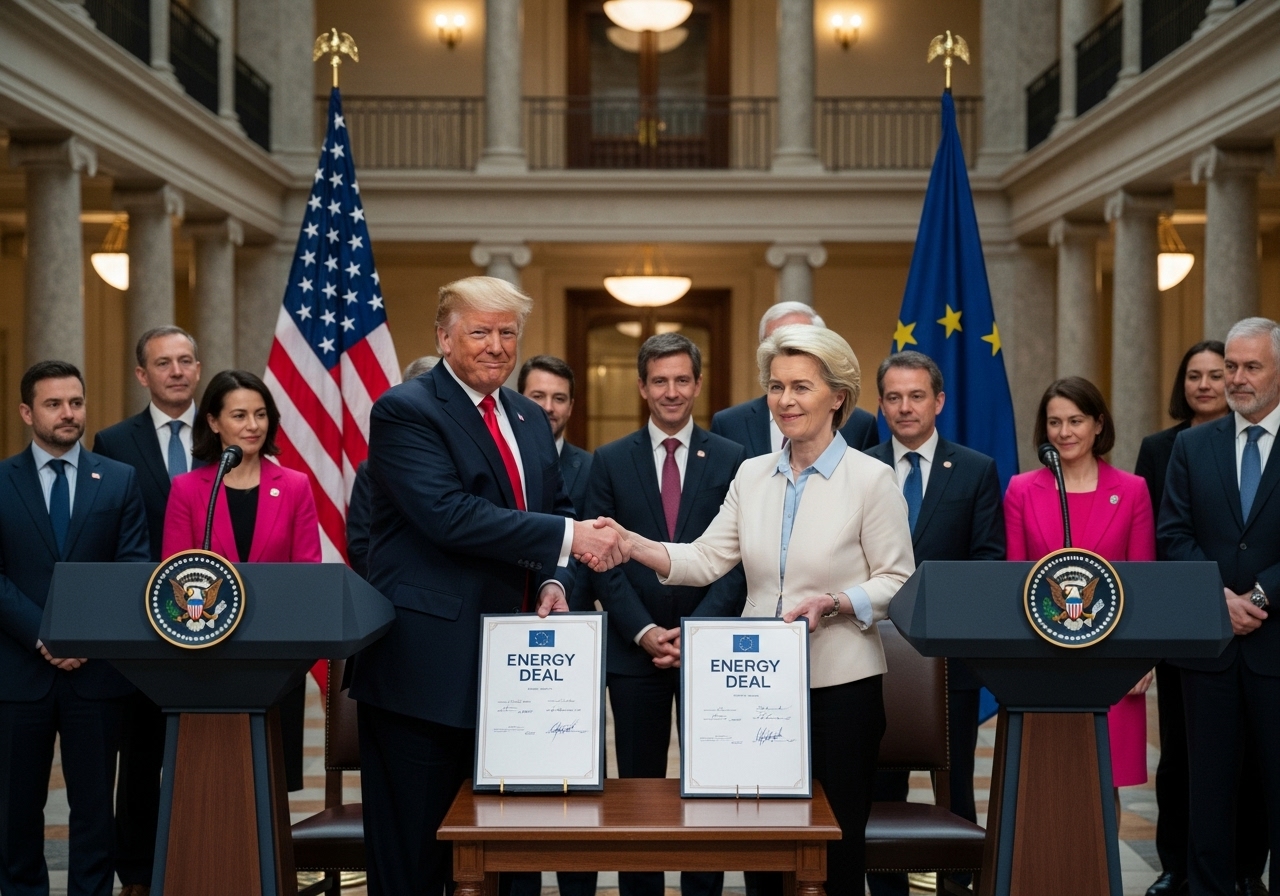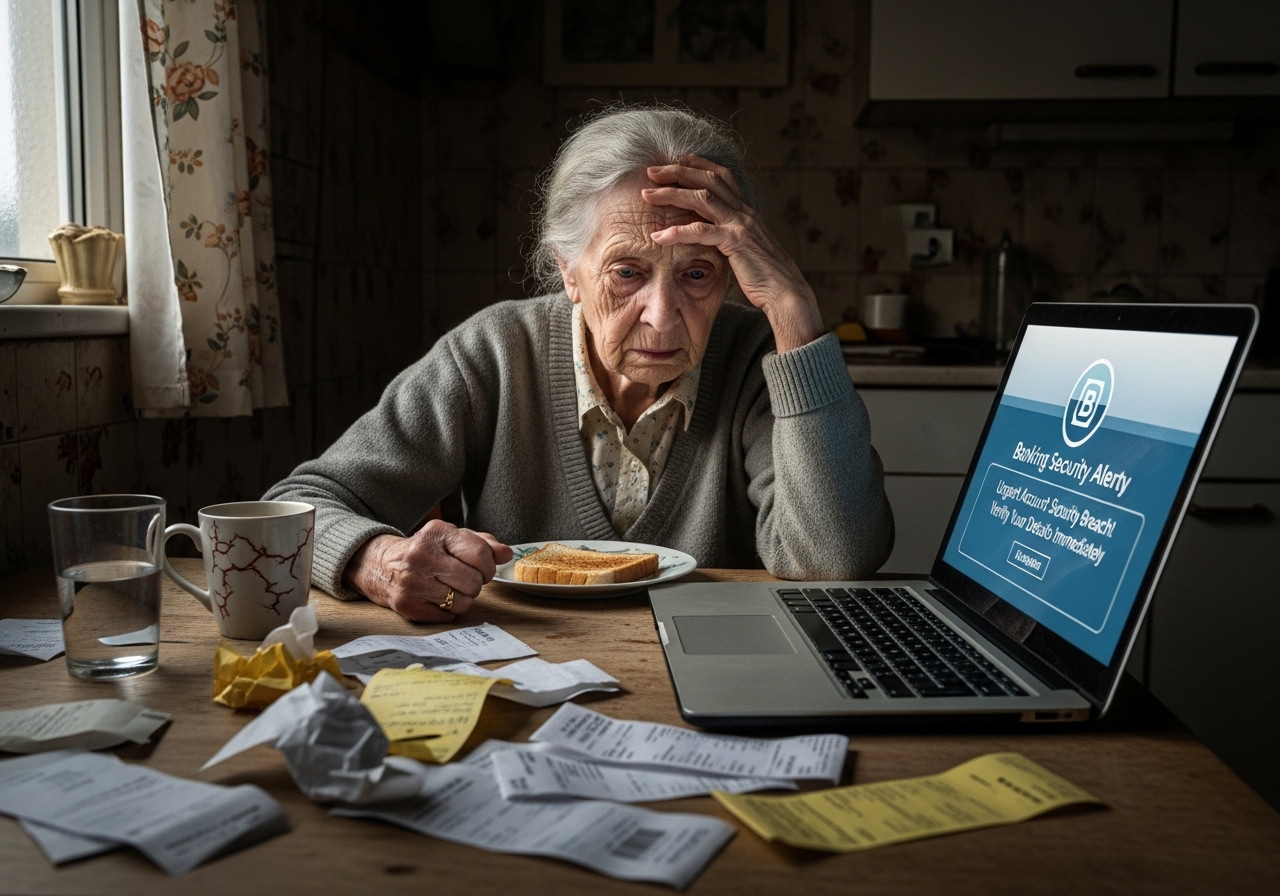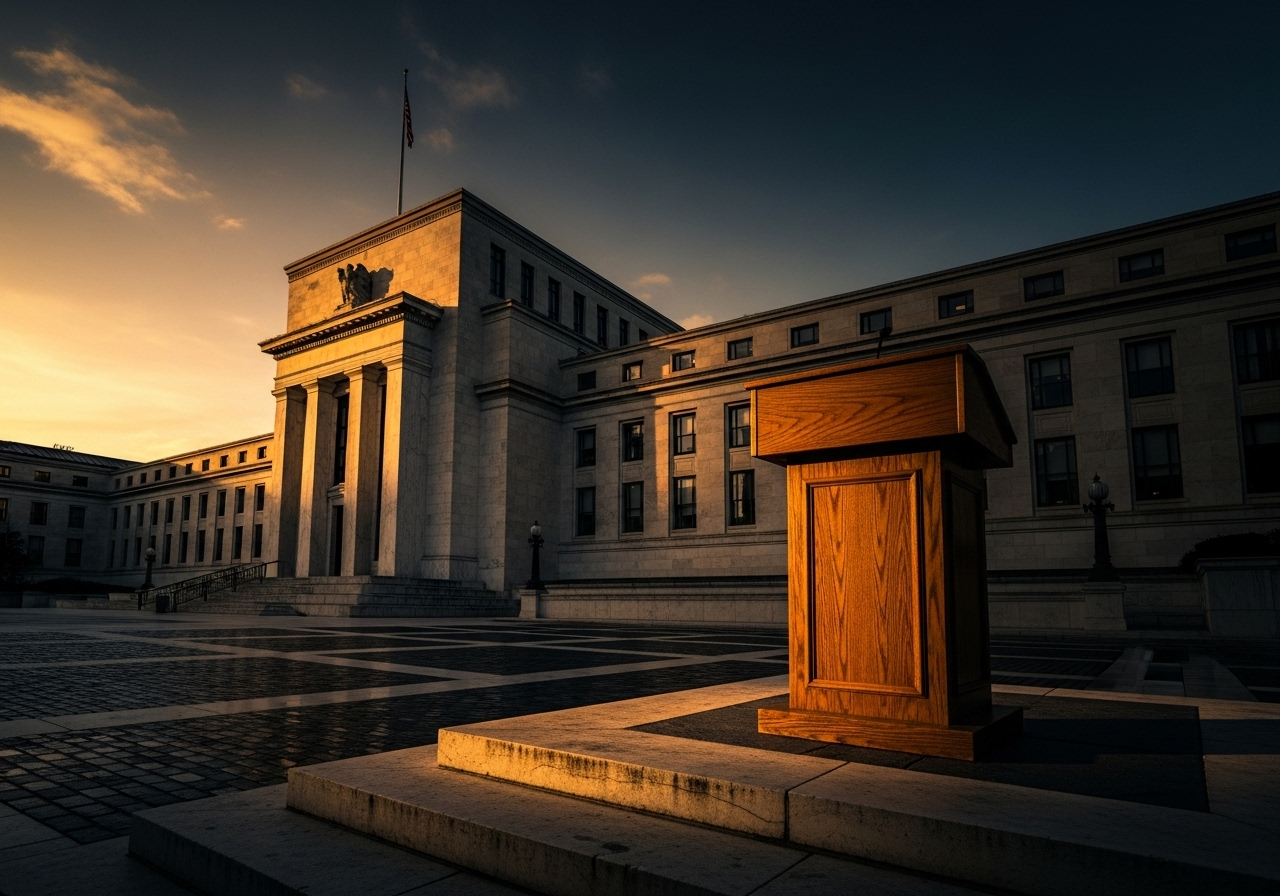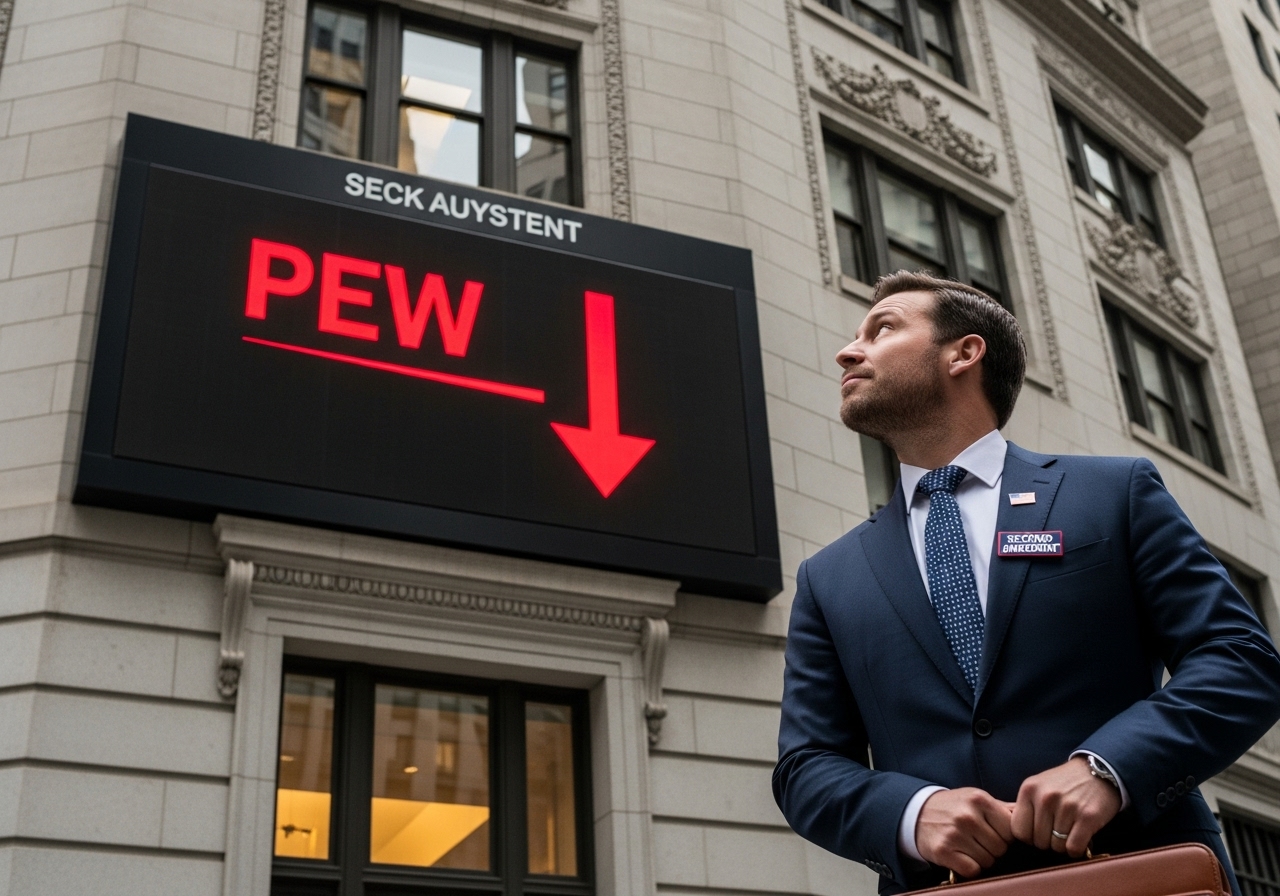It’s not every day that a U.S. president strikes a $750 billion energy deal that rewires the transatlantic economic relationship. But that’s exactly what just happened. President Trump has pulled off a historic trade agreement with the European Union, and while the media may try to downplay it or bury it beneath their latest manufactured scandal, the implications for American markets and investors are enormous.
Let’s break it down plainly: the European Union has agreed to purchase three-quarters of a *trillion* dollars in American energy products. That’s not a typo. That’s not a promise buried in diplomatic jargon. It’s a clear, concrete commitment that will directly benefit American producers, American workers, and American energy investors.
This isn’t just about oil and gas—though that’s a massive part of it. This is about reasserting energy dominance, creating reliable demand from one of the world’s largest economic blocs, and securing long-term stability in an industry that has been under siege by globalist climate fanatics and speculators. For years, the EU has been leaning heavily on unreliable green energy schemes and getting into bed with hostile regimes for their energy needs. Now? They’re turning to the United States.
For energy investors, this is a windfall. American LNG, natural gas, and crude oil producers now have a long-term, high-volume customer across the Atlantic. That kind of guaranteed demand lowers risk, boosts valuation, and strengthens the case for further exploration and infrastructure development. Pipeline projects, refining capacity, export terminals—everything in the energy sector just got a shot of adrenaline.
But that’s just the beginning. The EU will also be investing an additional $600 billion directly into the United States, on top of existing investments. That injection of capital has the potential to stimulate manufacturing, technology, and industrial sectors that have long been overlooked in favor of cheap foreign labor. In other words, this is not just a one-way street. The EU isn’t just buying American energy—they’re buying into America.
Now here’s the kicker: while the U.S. opens its energy taps, the EU opens its markets. President Trump and Commission President von der Leyen announced that the EU will set tariffs on U.S. goods at *zero percent*. Zero. That means American agricultural exports, machinery, tech, and consumer goods will now flow into Europe without the usual layers of bureaucracy and protectionist taxes.
This deal levels the playing field. For decades, the EU enjoyed a massive trade surplus with the United States. They exported their cars, wine, and luxury goods to us with minimal resistance, while throwing up barriers to American beef, corn, and shale. Trump called their bluff. He imposed firm, unapologetic tariffs—15% on EU imports, and held the line on steel and aluminum at 50%—and forced them to the table.
And what did we give up? Nothing. Even EU Commission President Ursula von der Leyen admitted it: “The starting point was an imbalance… we wanted to rebalance the trade relation.” This wasn’t a concession from America—it was a correction. We finally have a fair trade footing with the EU, and that’s going to strengthen the dollar, attract foreign capital, and give domestic producers a fighting chance.
Markets should take note. This agreement isn’t just good for energy—it’s a signal that American manufacturing and exports are once again competitive on the global stage. With lower tariffs and higher demand, companies with export potential—especially in the Midwest and Southern manufacturing belts—are suddenly in play. Investors would be wise to look at logistics, heavy industry, and agricultural firms that stand to benefit from new European demand.
And let’s not overlook the geopolitical angle. By shifting Europe away from Russian and Middle Eastern energy sources and toward dependable American supply, this deal also strengthens Western unity and economic security. It reduces volatility, undermines adversarial regimes, and gives the United States greater leverage in global affairs.
In short: this is what real leadership looks like. No climate hand-wringing, no bureaucratic dithering—just hard-nosed negotiation that puts America first and delivers results. For investors, for workers, and for the country, it’s a win across the board.










